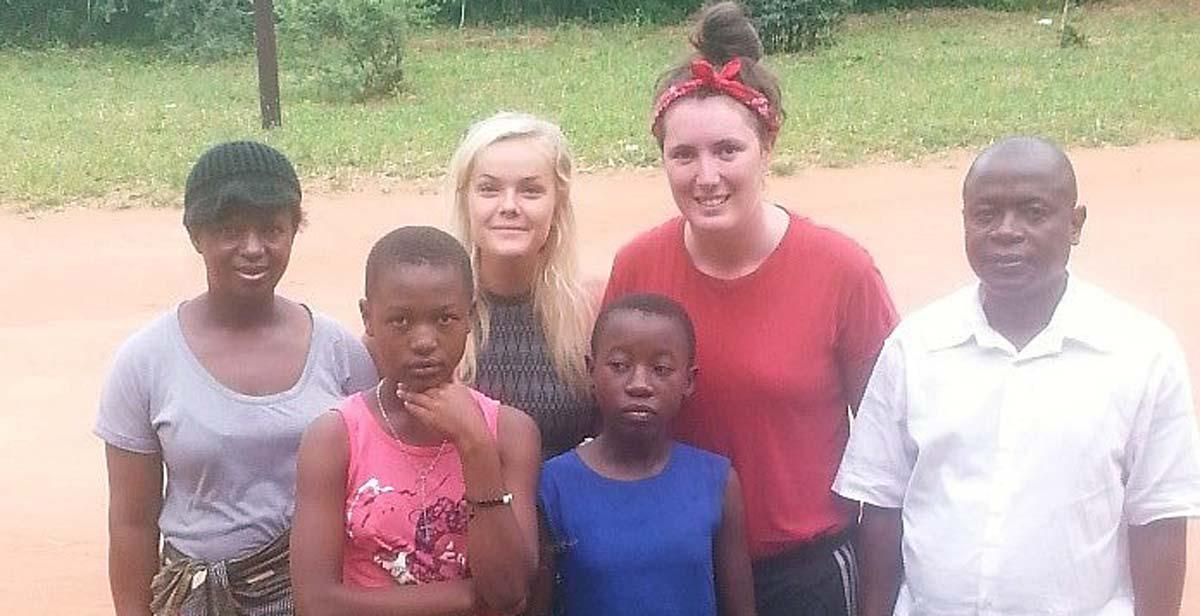Before starting your ICS placement, fears of moving in with an entirely new family, with a different and unknown culture to you, definitely crosses your mind. However, three months down the line and you wonder why you was ever concerned, so I am here to reflect and give some tips on host homes regarding my time in Malawi.
Language
My major worry before coming on placement was not being able to communicate with my family and feeling isolated because of it. However, when my roommate Molly and I arrived we were greeted in basic English by our Amama (mum), which was very welcoming, and our Adada (dad) was fluent in English, as he taught in the local secondary school and the children learn in English at school. Our sister Takwonda also spoke very good English and was able to translate into the local language for when there were any communication problems between us and Amama. The younger children around the house, including our sister Idah, are generally quite shy to speak English in front of you for the first few weeks for fear of getting it wrong, but they soon grow in confidence and we ended up having lots of laughs and fun all together. The family also like you to learn their local language and you end up being 'quizzed'. This involves them saying random words and asking if you know what it means, to which the answer is normally no, them telling you what it means and you having to pronounce it - which is normally done wrong and then everyone falls about laughing!
Tip - be prepared for the families to talk in their local language to each other sometimes, and you not knowing what is being discussed. It is just easier and faster for them to communicate, so don’t get offended.
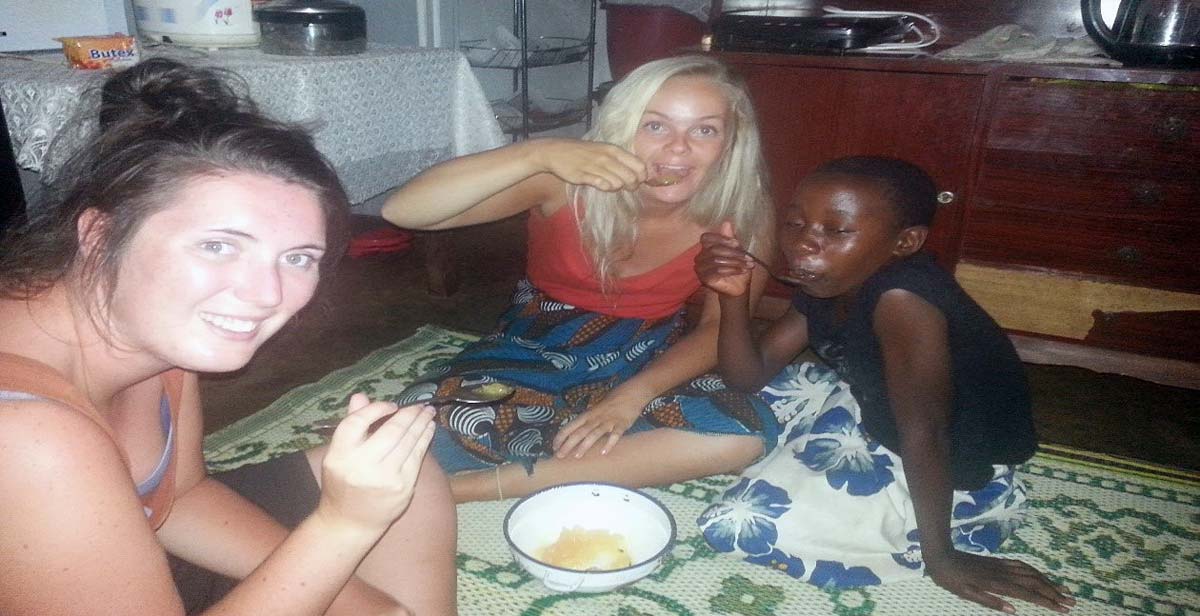 Enjoying some jelly in the evening
Enjoying some jelly in the evening
Facilities within the house
I personally went to Malawi with the expectation of living in a mud hut with no electricity for weeks, and having to walk miles every day to collect water, however I was pleasantly surprised when walking into my host home and seeing a television, with 'Keeping up the Kardashians' being played on it! There were also plug sockets within my spacious bedroom with actual beds(!) meaning our phones were regularly charged up. As expected there were occasional power cuts, due to heavy rains, which could last from 10 minutes to a whole day, but on average only occurred once a fortnight. However, you will find that cooking and eating your dinner by torchlight certainly adds to the ICS experience! The biggest shock was the fact my bedroom had a little ensuite with a flushing toilet and a working shower - albeit a cold one!
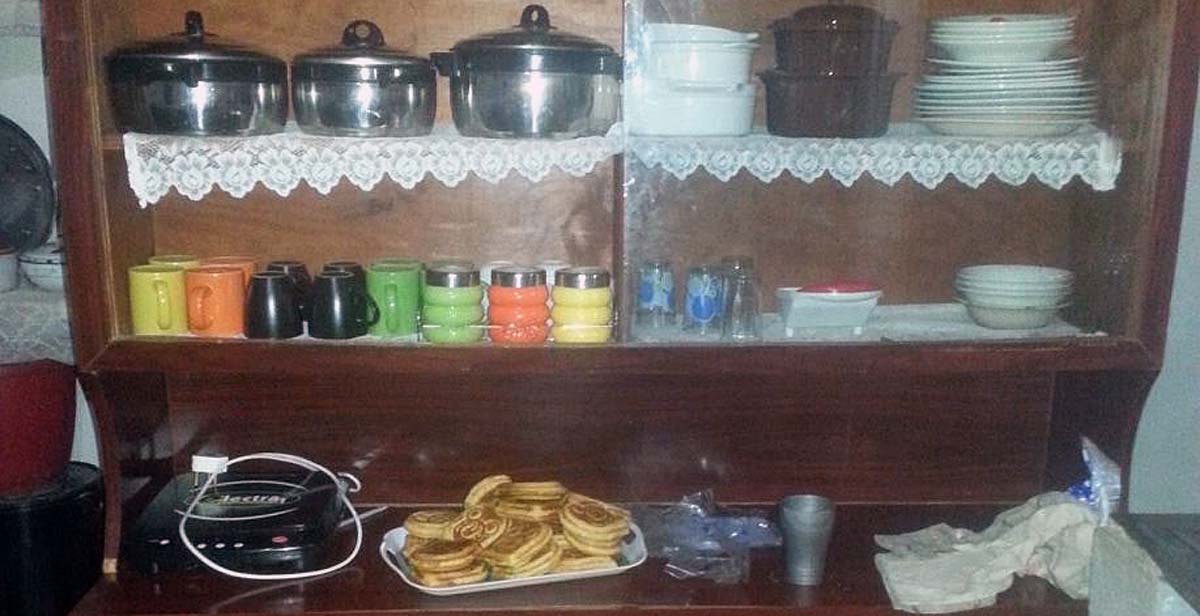
Culture
The cultural aspects of living with a Malawian family differ slightly from the UK, with the most obvious one being that the father is the head of the household, and whatever he says goes. This however is not a completely negative experience as one Friday night our Adada made us get out of bed to drink Fanta with him and his friend whilst our Amama cooked some amazing chicken on the makeshift barbeque! For females in Malawi, it is cultural for women once they hit puberty to wear chitenjes around the house as well as outside of the house. It is also expected to have knees covered at all times. Every girl on placement purchased one to be culturally sensitive to the villagers, however we found we did not need to wear ours around the house, but still covered our knees to not offend anyone!
Tip - Ask your Malawian volunteers and family if your clothes are acceptable otherwise you may unintentionally offend the whole village!
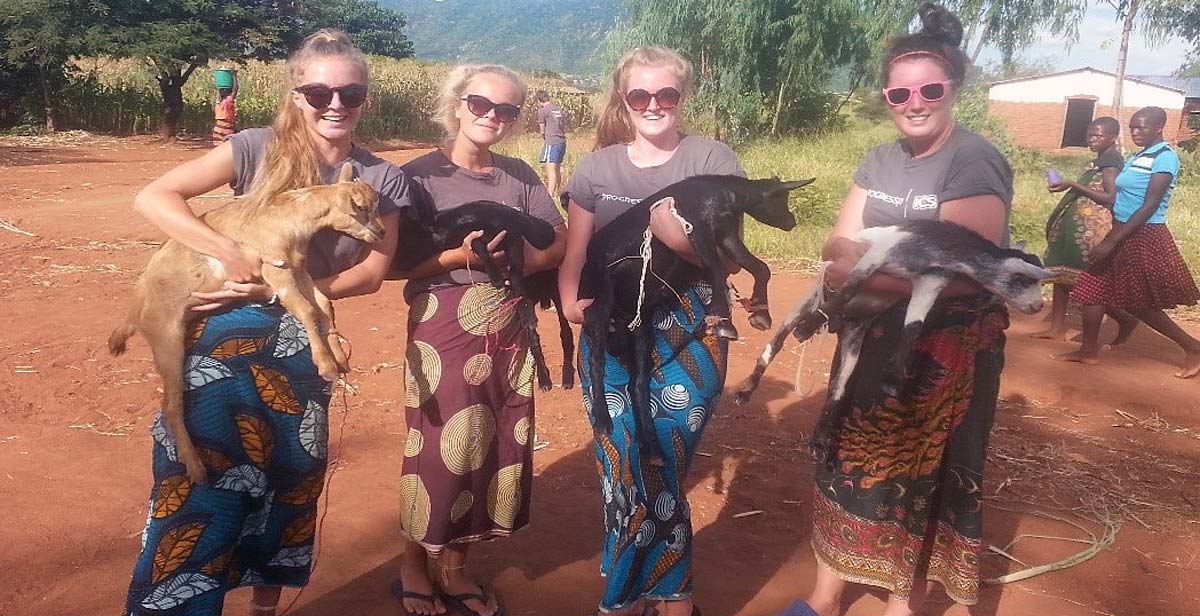 Girls, goats and chitenjes
Girls, goats and chitenjes
Food
The staple food of Malawi is a substance called 'nsima', which is quite frankly maize flour mixed with water over a heat. It is an acquired taste, but described by fellow volunteers as a tasteless mashed potato! Rice is the other main carbohydrate, however is more expensive than nsima so eaten less regularly. Food is often served with a 'relish', which can range from beans, eggs, vegetables or occasionally meat (probably once a week - again expensive!), and often has a 'soup' accompanying it made from tomatoes. I quite enjoyed the new diet and the lack of fried food certainly helped me lose weight, which is always a bonus! There are however shops in the town where you can get your chocolate fix for about 90p.
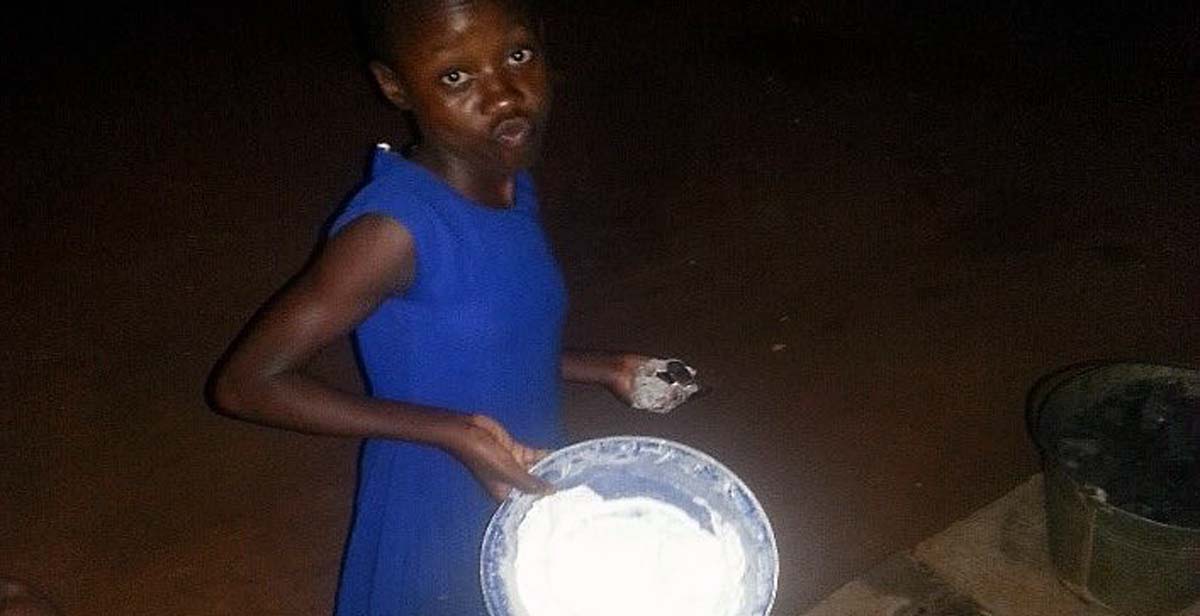 About to add the maize flour to the boiled water to cook nsima!
About to add the maize flour to the boiled water to cook nsima!
Tips - give everything a try once, even fish with the heads still attached, BUT, if you don't like it, tell your family straight away otherwise you will be forcing down food you hate for the next three months.
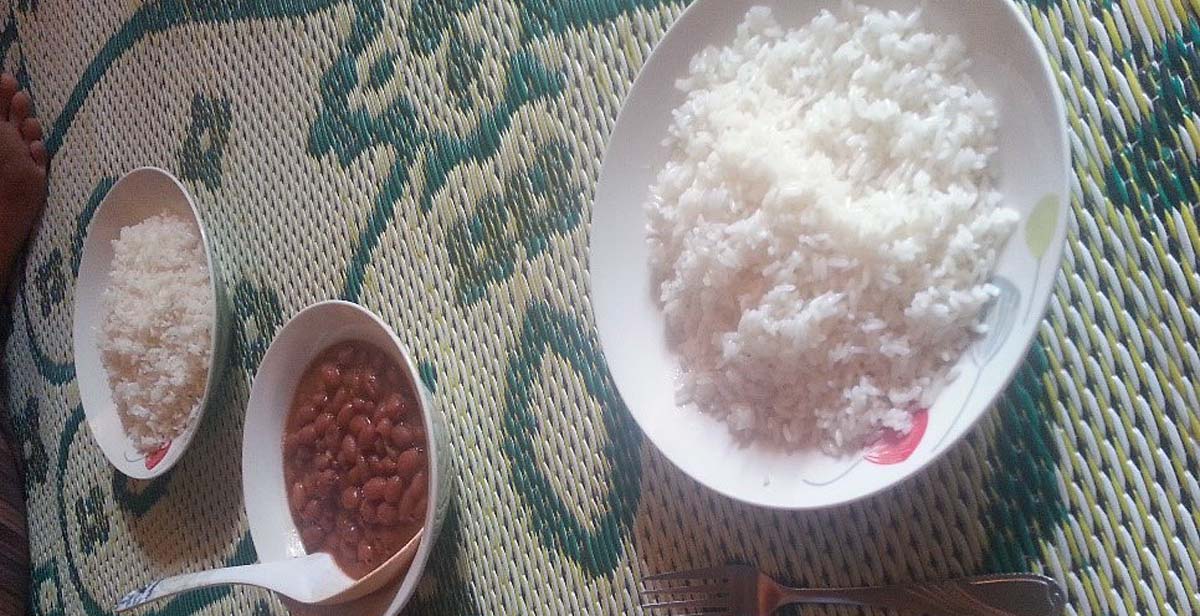 Rice and beans - a very tasty dinner!
Rice and beans - a very tasty dinner!
Overall, I would say that living with host families definitely enhances your ICS experience and engages you with the culture that Malawi has to offer. I got to enjoy many different experiences with my host family, such as attending a bridal shower, our pet dogs having puppies and introducing the card game Snap to the children. I now consider myself to have two families and cannot wait to head back out there and visit them again, and hopefully avoid the emotional farewell next time!
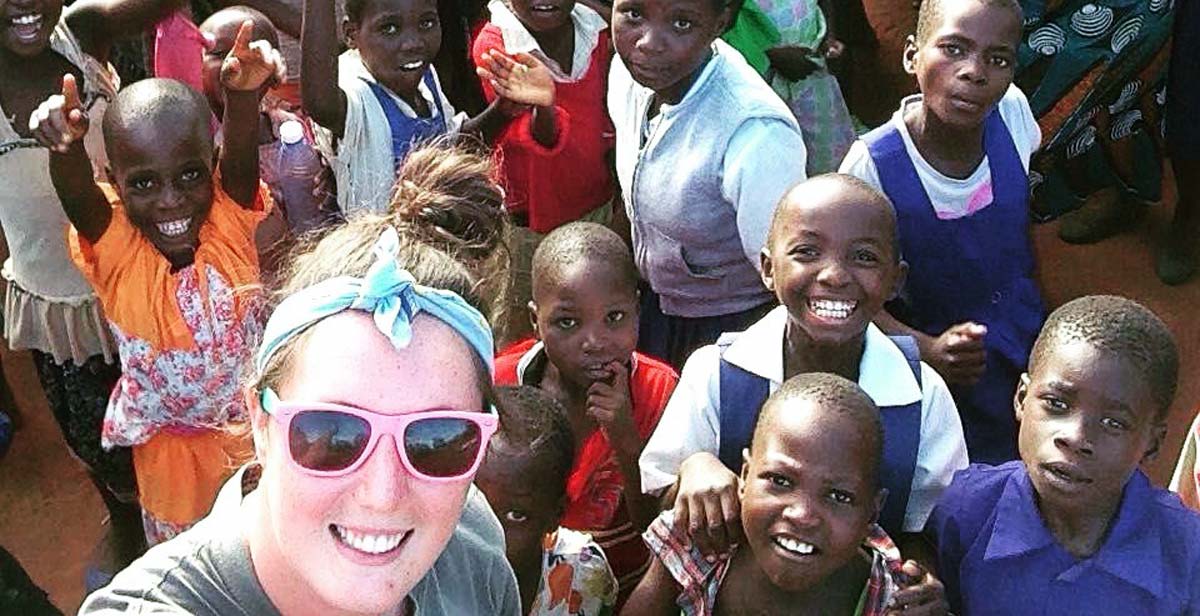
Written by ICS Alumni Tania Morton (January - March 2016 cycle, Team Tilitose Sprodeta, Rumphi, Malawi)


